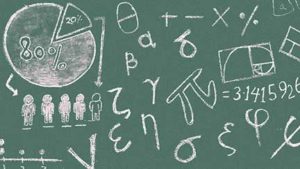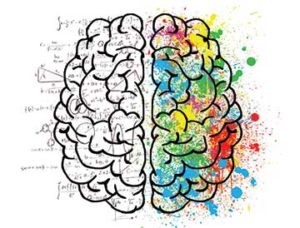Hemen Dutta
India has every reason to feel proud of its rich heritage in mathematics and astronomy. In ancient India, many important developments in mathematics came through astronomical practices. Several modern Indian mathematicians have received international awards and recognition such as the Third World Academy Mathematics prize, ICTP Ramanujan prize, King Faisal prize, etc. However, most of these achievements have come only from very few elite institutions. There is evidence to suggest that there has been a steady loss of interest in the study of mathematics among the younger generation over the last few decades. Several reasons behind this loss of interest have been discussed at different platforms. However, it may still be necessary to review the issues responsible, in varying extent, for the lack of interest among students towards mathematics.
 Many people believe that mathematics is not related to market requirements, and thus there are limited career options. Some also believe that a degree in higher mathematics in combination with another course/degree such as in computer science or business management can only be helpful in acquiring a job in the financial, banking and technology sectors. There are many who believe that the career options available to mathematics graduates in private sectors may not be attractive in terms of emoluments in comparison to graduates from other subjects like management, engineering, etc. So, there is a sense of insecurity among many regarding a career in mathematics. However, it can be argued with sufficient examples that if one is comfortable with mathematics, he/she will be able to get a good job. Higher mathematics education will not be a hindrance in the path of one’s successful career if one is willing to apply oneself accordingly. A properly trained student of mathematics has many more career options available to him than people believe. Some of these include working as an urban designer, public utility analyst, climate analyst, estimator, animator, epidemiologist, cryptographer, market research analyst, statistical analyst, quantitative analyst, forensic analyst, commodities trader, claim and benefit adjuster, population ecologist, air traffic controller, pollster, stock broker, foreign exchange trader, company research scientist, etc. In fact, in many working situations, a mathematician has an advantage over others in performing his/her job more effectively and efficiently.
Many people believe that mathematics is not related to market requirements, and thus there are limited career options. Some also believe that a degree in higher mathematics in combination with another course/degree such as in computer science or business management can only be helpful in acquiring a job in the financial, banking and technology sectors. There are many who believe that the career options available to mathematics graduates in private sectors may not be attractive in terms of emoluments in comparison to graduates from other subjects like management, engineering, etc. So, there is a sense of insecurity among many regarding a career in mathematics. However, it can be argued with sufficient examples that if one is comfortable with mathematics, he/she will be able to get a good job. Higher mathematics education will not be a hindrance in the path of one’s successful career if one is willing to apply oneself accordingly. A properly trained student of mathematics has many more career options available to him than people believe. Some of these include working as an urban designer, public utility analyst, climate analyst, estimator, animator, epidemiologist, cryptographer, market research analyst, statistical analyst, quantitative analyst, forensic analyst, commodities trader, claim and benefit adjuster, population ecologist, air traffic controller, pollster, stock broker, foreign exchange trader, company research scientist, etc. In fact, in many working situations, a mathematician has an advantage over others in performing his/her job more effectively and efficiently.
It is believed that the mathematics syllabus is far off from real world problems. Also, the teaching-learning strategies adopted in several schools fail to connect mathematics with real-life experiences. The mathematics teacher may lack in-depth knowledge and passion in crucial topics necessary to generate sufficient interest among the students. Proper training and grooming of mathematics teachers at regular intervals should be helpful in devising more effective practices in teaching-learning mathematics inside and outside the classroom. There is also a need to regularly identify quality teachers and reward them suitably to create a more competitive environment. More infrastructure such as mathematics laboratories for practical experiences, museums for experimenting with mathematics, mathematics teachers’ training and grooming institutions, ICT-based laboratories for mathematics teaching-learning, provision for hiring of specially trained mathematics instructors, invitation to national and foreign volunteers having the requisite expertise, study tour and exchange opportunities aimed at mathematics learning, etc., are some ways to generate more interest among the learners.
 There is a lack of co-ordination and integration among the primary and higher-level mathematics teachers. Teachers associated with higher education may not be happy with the low mathematical temper of the students who opt to study math at the university level. Moreover, school teachers occasionally complain about the isolation of the curriculum from the child’s experience. The government should sponsor enough integration camps comprising mathematics teachers at all levels of education as well as other mathematicians. Also, the institutions concerned should regularly organize co-ordination programs so that primary and high school math teachers get to know each other better and discuss relevant issues of common interest.
There is a lack of co-ordination and integration among the primary and higher-level mathematics teachers. Teachers associated with higher education may not be happy with the low mathematical temper of the students who opt to study math at the university level. Moreover, school teachers occasionally complain about the isolation of the curriculum from the child’s experience. The government should sponsor enough integration camps comprising mathematics teachers at all levels of education as well as other mathematicians. Also, the institutions concerned should regularly organize co-ordination programs so that primary and high school math teachers get to know each other better and discuss relevant issues of common interest.
The government and NGOs have been drawing different plans to improve the school education system. Mathematics is the queen of all sciences. Life sciences, medicine, social sciences, etc., were less attached to advanced mathematics but they are now benefiting immensely from mathematical advances and tools. The world of finance has been using mathematics for its rescue in many situations. In fact, mathematics has its applications in different social issues that can affect a human being’s life in several ways. Thus, there is a need for more funds towards the growth of the subject right from the school level.
It is necessary to deal more appropriately and effectively with the psychological and sociological aspects associated with mathematics learning at the school level to reduce further loss of interest in the study of mathematics. Timely measures for inspiring, ensuring, and improving the quality of mathematics education are necessary from the school level onward for a greater contribution of mathematics in the development of the society. However, effectiveness must be judged differently in mathematics teaching-learning across various learning situations and levels, and a proper understanding of this could help improve the conditions. There is a need for more collaborative efforts involving people associated with different levels of mathematics education to make optimum teaching-learning plans. Also, the generation of new resources and proper use of available resources are necessary as teaching-learning aids keeping in mind specific needs and capabilities of different stakeholders including students and instructors.
The author is a senior assistant professor in the Department of Mathematics at Gauhati University. He has over 12 years of teaching and research experience. He has to his credit over 50 research papers, 4 books and several articles on teaching-learning, science education and research. He has been a resource person in training programmes for school teachers and delivered popular talks.
